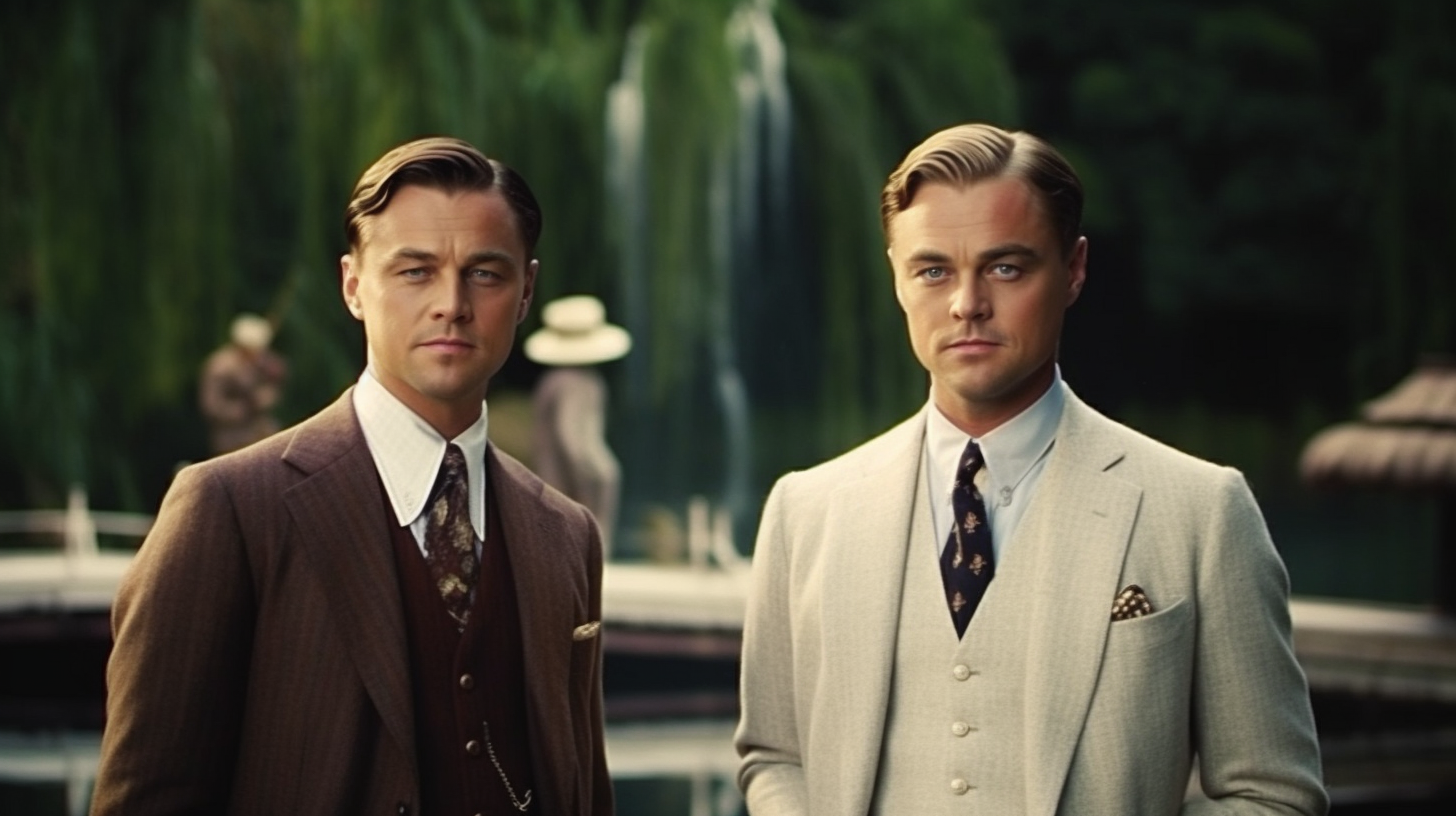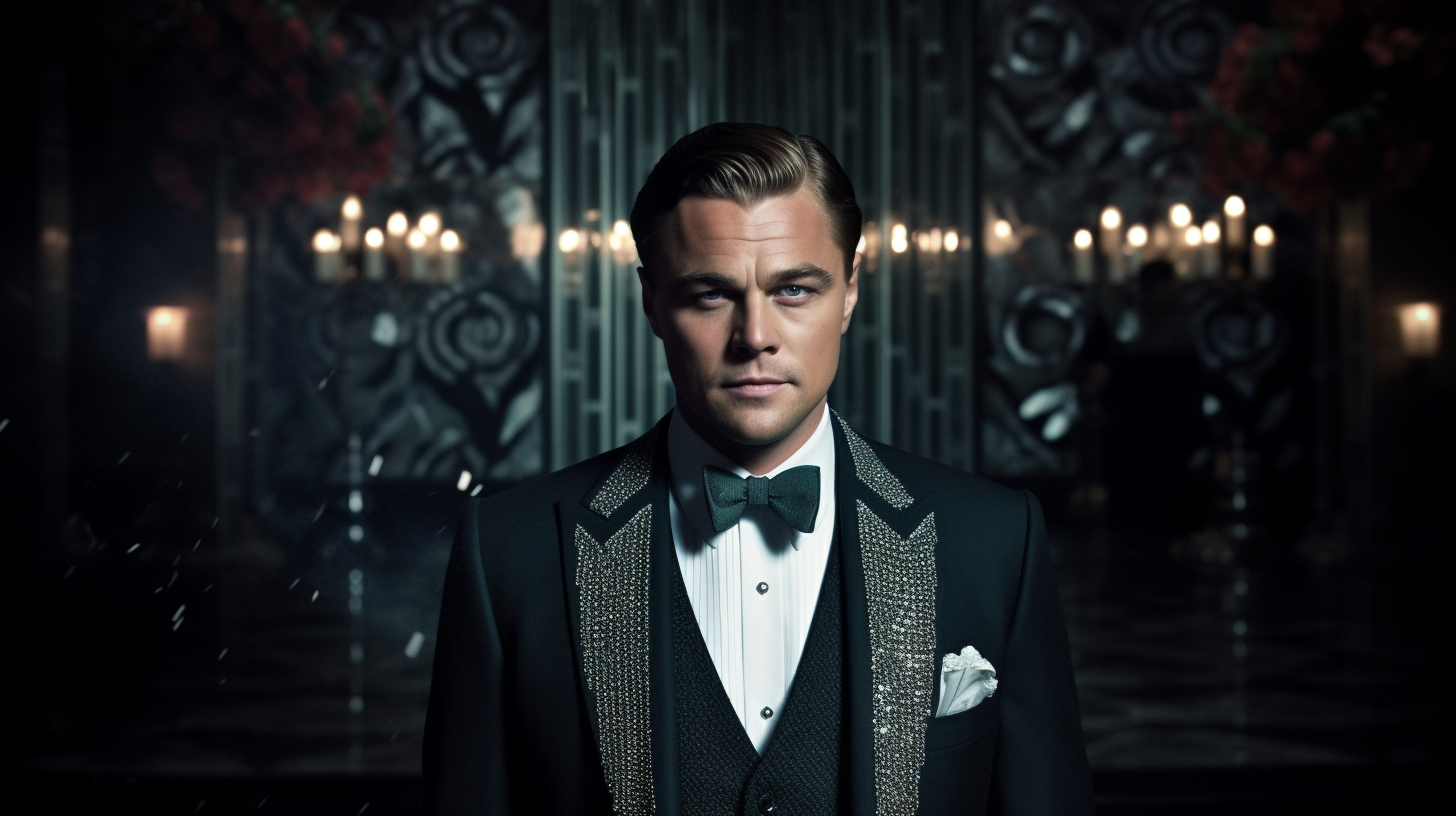Fitzgerald unveils the dangers of unchecked power and its corrosive impact on personal integrity through his character
In Fitzgerald's outstanding work, The Great Gatsby, the ethical dilemmas embedded within the narrative unfold like a symphony of complex human interactions. This opus of moral quandaries, set against the dazzling backdrop of the Jazz Age, compels us to scrutinize the underlying principles that govern our choices and aspirations.
At the center of this enigmatic web, we encounter the mysterious Jay Gatsby, a man whose grandeur and allure mask a labyrinthine past. His towering mansion symbolizes his ambition, yet layers of secrecy and undisclosed desires lie beneath its opulent facade. Gatsby's unyielding pursuit of love, veiled by an elusive longing, urges us to question the boundaries of ethical conduct when faced with overwhelming passion.

Daisy Buchanan, a figure of ethereal elegance, epitomizes the societal constraints that confine her. Trapped in a loveless marriage, her spirit yearns for emancipation. Through her character, Fitzgerald prompts us to contemplate the dissonance between societal expectations and personal fulfillment, highlighting the internal struggle faced by individuals torn between their desires and conventional demands.
Gatsby's infatuation with Daisy leads him to tread a precarious path, where moral rectitude becomes blurred and compromised. In his quest for love, he dances on the precipice of morality, leaving us to ponder the intricate interplay between personal aspirations and the ethical ramifications of our actions.

Amidst this tapestry of human frailty, we encounter Tom Buchanan, a man of privilege who wields his status with a potent mix of arrogance and entitlement. His moral compass, once steady, now spins recklessly as he indulges in extramarital affairs, heedless of the consequences. Fitzgerald unveils the dangers of unchecked power and its corrosive impact on personal integrity through his character conventional.
Jordan Baker, a player in this intricate game of life, personifies the allure of success at any cost. Her deceptive nature and calculated maneuverings underscore the compromised values permeating this wealth and ambition world. Through her presence, Fitzgerald beckons us to question the price we are willing to pay in our relentless pursuit of achievement and the ethical compromises we are ready to make.
Fitzgerald's masterpiece, this literary creation, holds a mirror to our existence. Within its pages, the ethical dilemmas embedded in the narrative transcend time and speak to the universal difficulties that shape the human condition. It serves as a cautionary tale, urging us to reflect upon our choices and the ethical foundations upon which we build our lives.

Our take: The Great Gatsby stands as a testament to the enduring power of literature to illuminate the depths of human nature and the complexities of moral decision-making. Fitzgerald's portrayal of ethical dilemmas within a vividly rendered era invites us to ponder the collision of personal desires and societal expectations. Through this exploration, we are reminded of the significance of integrity, the dangers of unchecked ambition, and the inherent struggle between individual happiness and the ethical fabric of our existence. In contemplating these themes, we are compelled to reevaluate our moral compasses and aspire towards a higher sense of the Good (καλός), seeking a harmonious balance between personal aspirations and ethical responsibilities.

Plato Re-Imagined
This course offers 32 comprehensive lectures exploring most of Plato's dialogues. These lectures guide students toward a consilient understanding of the divine—a concept that harmonizes knowledge across disciplines and resonates with secular and religious leaders. As a bonus, Lecture #33 focuses on consilience, demonstrating how different fields of knowledge can converge to form a unified understanding.






